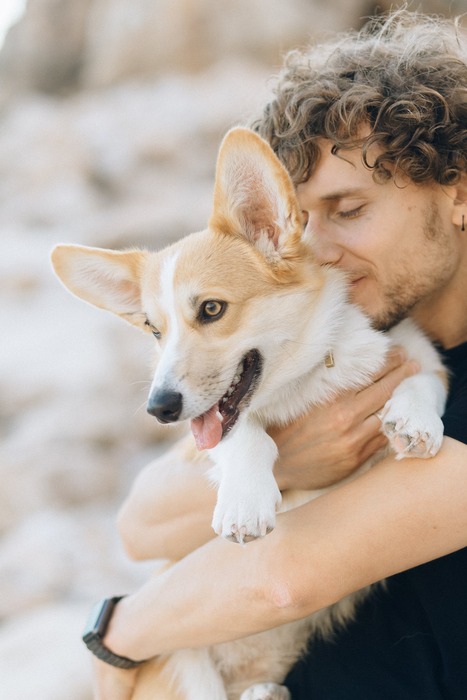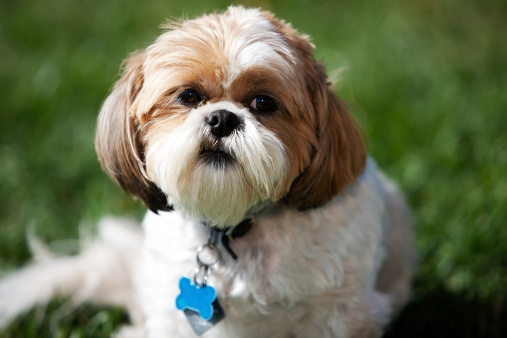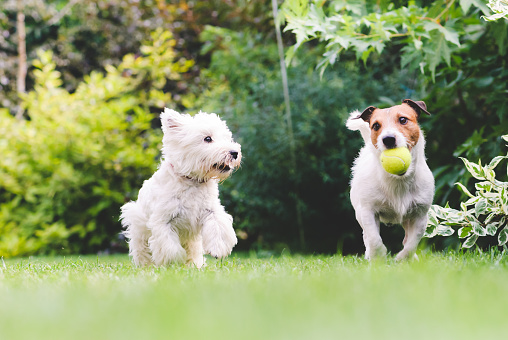2022-12-06
Being a pet owner is related to many positive feelings-love, care, joy...etc. However, having a pet also means that you will need to invest a lot of time, money, and energy and be responsible. “Responsibility” is a word that we typically do not like to hear in our daily life, as we pair it with work, stress, and things that depend on us. It is essential for those of you, who are considering getting a pet, to have a clear idea of what responsibility you agree to bear when deciding to have a pet.
Today we will talk about pet ownership as a commitment and responsibility and will give you tips on how to be a responsible pet owner.

Before we start listing specific tips, we want to affirm, that the very first step of being a pet owner, is being honest with yourself about whether you can take the responsibility and commitment for pet ownership or not. You should be prepared to actively engage in raising the pet. Having a pet is a lifetime commitment, and you should not take impulsive decisions.
You may want to have a dog, but not have time to walk him/her, play with him/her, bring him/her to regular veterinarian checks...etc. Sometimes, we deliberately ignore all the logical factors, that may stop us from taking the decision we want. You should be aware of whether the pet you want to have will suit your lifestyle and temperament or not. Will it be large or small, how much time a day will it require, will it have fur or not (some people are allergic to fur), will it be energetic, how old will it be...etc. There are many questions you need to answer prior to getting a pet.
Ensuring that your pet will live in a safe environment can include many things-from fencing the backyard to prevent him/her from running and getting lost or injured, keeping locked the food that is potentially dangerous for him/her (i.e. chocolate, xylitol, nuts, onion/ garlic...are toxic for dogs), supervising his/her interactions with people and animals, choosing a suitable spot to put his/her crate (it should be neither isolated nor crowded, neither too hot nor too cold)...In general, you need to ensure that your new family member will remain safe and will feel comfortable in his/her new home.
In terms of “health”, you should make sure that your pet has access to fresh air and clean water every day. Also, you should try to feed him/her quality food, that does not contain additives or coloration.

This point is logically connected to the previous one, as it contributes to keeping your pet safe. By putting an ID tag, an ID card, or any type of identification gear with your phone number and name on it, as well as microchipping your pet (especially valid for dogs), you prevent him/her from ending up in a shelter and eventually getting euthanized, in case he/she gets lost.
Responsible pet owners do not miss taking their beloved pets to regular veterinarian checks. If you have a dog, you should know that you would need to take it to the veterinarian's office every month for the first 4-5 months. Pups need to be fully vaccinated against Distemper, Parvovirus, Hepatitis, Rabies, and Parainfluenza. Your veterinarian will give you accurate advice on what vaccines are mandatory for your pup and will provide tips on what preventive actions against parasites you need to take.
You need to take care of both your pet’s physical and mental health. If you are a dog owner, you should take your paw friend on regular walks, exercise him/her, and provide him/her with toys that will improve his/her mental health, and agility. You should take your dog's breed into account, to make a routine that is most suitable for him/her. Some dogs have higher energy levels and are prone to developing bad behaviors if left unattended for several hours without toys or opportunities to spend their energy. Tug toys (there are also outdoor tug toys that do not require the presence of the owner), chase toys, puzzles...etc.- you can choose among various types of toys, based on your dog’s preferences and what type of stimulation you want to provide.

This part is crucial for the proper development of dogs. If you want your paw friend to become a friendly and well-behaved adult, who is not afraid of getting into new situations and being around new people and animals, you should not neglect his/her socialization. It is not recommended for pups to go outside before being fully vaccinated. However, this does not mean that you should wait for that time to come, to start the process of socialization. It begins in the family, where the dog learns to interact with the family members and any other pets in the household (if there are any). You are the person who teaches the dog how to interact with the world, and what he/she is allowed and not allowed to do, i.e. hard biting during play or chewing on the furniture is not allowed. This is the time when you can expose your little fellow to new stimuli (step by step) and create a positive attitude in him/her towards them. Usually, this can be done by pairing the presence of certain stimuli with treats or toys (positive reinforcement). During the process of socialization, you will know your pup better, which will help you socialize in the right way. You will be able to take his/her personality and temperament into account and gradually expose him/her to various stimuli and situations.
Although training is mandatory for service animals (basic obedience plus specialized training) and companion animals (basic obedience), it can be very beneficial for all dogs in general. Knowing basic obedience commands such as “sit”, “stay” and “come”, means that your dog is able to behave appropriately in various situations, and you should not worry when being with him/her outdoors. Basic obedience is very helpful to owners, who are with their dogs in crowded places, where there are a lot of distractions.
When you plan for an emergency, you should count your pet in. This means having food and water aside for emergency cases, putting stickers on the windows that will notify the medical staff about the presence of a pet in the home, as well as preparing first aid kits for your pet. First-aid kits for dogs can include items such as antibiotic ointment, cotton rolls, scissors, a pill box, tweezers, medical gauze, cotton balls, bandages, adhesive tape, antiseptics...etc.